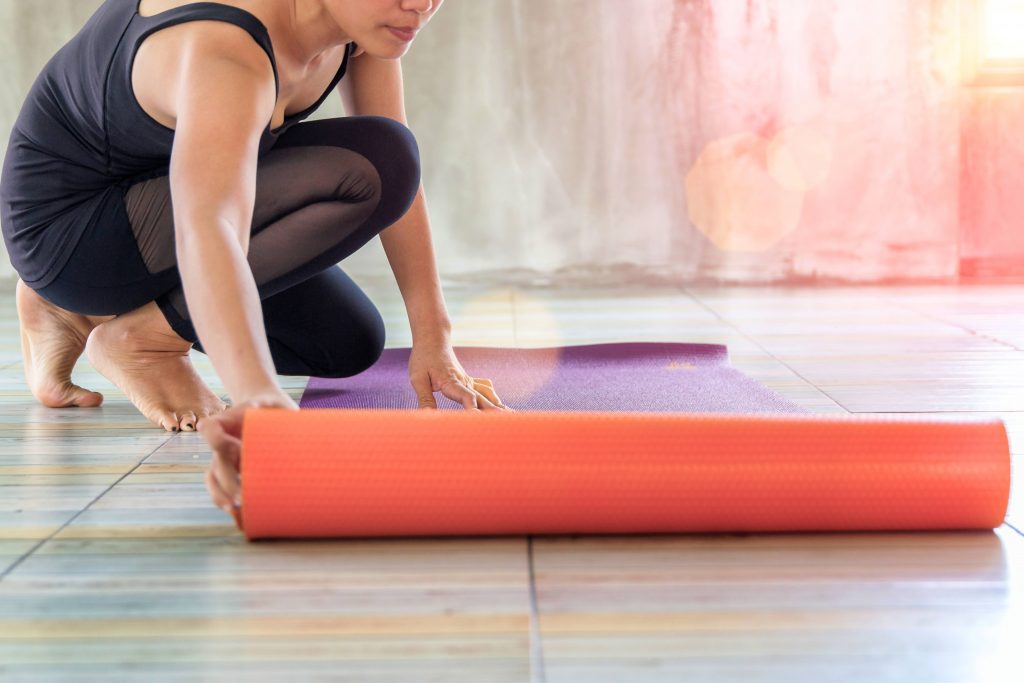-
Health & Wellness
Mayo Clinic Q and A: Hot yoga for weight loss and overall health

DEAR MAYO CLINIC: A friend of mine started doing yoga a few months ago and said after two classes a week, she has become stronger and lost weight. I want to lose weight, too, and my blood pressure is high, so my friend suggested I join her for a hot yoga class. I'm not familiar with yoga, so I am wondering if it’s safe for me to do. Also, will heated classes help me?
ANSWER: Yoga is a mind-body practice that combines physical poses, controlled breathing, and meditation or relaxation. Yoga may reduce stress and anxiety, lower blood pressure, and lower your heart rate.
There are many styles, forms and intensities of yoga. Hatha is one of the most common styles of yoga, and beginners may like its slower pace and easier movements. Prenatal yoga has been reported to help women prepare for labor and might even promote the baby's health. For animal lovers, there are even goat yoga classes.
Hot yoga is a vigorous form of yoga performed in a very warm, humid studio. During the Bikram form of hot yoga, the room is heated to approximately 105 F (40 C) and has a humidity of 40%.
Regardless of the type of yoga you choose, the core components of most general yoga classes include various poses designed to increase strength and flexibility, and controlled breathing to quiet the mind and improve awareness.
The practice of yoga can improve your health. Potential health benefits include:
- Stress reduction. A number of studies have shown that yoga may reduce stress and anxiety. It also can enhance your mood and overall sense of well-being.
- Improved fitness. Practicing yoga may lead to improved balance, flexibility, range of motion and strength.
- Management of chronic conditions. Yoga can help reduce risk factors for chronic diseases, such as heart disease and high blood pressure. Yoga also might help alleviate chronic conditions, such as depression, pain, anxiety and insomnia.
Specifically regarding hot yoga, the challenge comes from both the temperature of the studio and the intensity of the different standing and stretching postures. The postures require lengthy, forceful and sustained contractions of all major muscle groups. The demanding nature of the poses and the heat are designed to raise your heart rate and exercise your muscles.
Although you may sweat more during hot yoga, the research is ongoing regarding its effects on body fat and heart health. In general, yoga may be a useful addition to an overall weight-loss plan that includes regular aerobic exercise and a healthy diet. Although yoga is not considered a high-intensity workout in terms of burning calories, it is a great way to get more physically fit and certainly has benefits such as mindfulness, which can help with managing and sticking to your diet.
While yoga can quiet the mind and body, which leads to relaxation and less stress, the intensity of the hot yoga workout and the high temperatures could cause other issues. Although most people can perform hot yoga, there is an increased risk of dehydration, heat exhaustion or heat stroke. If you have any concerns or underlying health conditions, it's always best to consult your health care provider before starting a new exercise routine such as hot yoga.
You will want to drink plenty of water before, during and after the workout. Also, be aware of the signs of heat-related illnesses. If you feel lightheaded, dizzy or in any way sick, stop immediately and seek medical attention.
It's probably best to skip hot yoga if you have heart disease or a history of heat-related illness such as heatstroke or dehydration.
Yoga can be a valuable practice for your overall health and well-being, but as every person has a different body with different abilities, you may need to modify yoga postures based on your abilities. Your instructor should be able to suggest modified poses.
Regardless of which type of yoga you practice, you don't have to do every pose. If a pose is uncomfortable or you can't hold it as long as the instructor requests, don't do it. Good instructors will understand and encourage you to explore but not exceed your personal limits.
Try different classes and find what feels good to you. You also will want to find an instructor that you can connect with. It is important to choose an instructor who is experienced and understands your needs. — Dr. Adam Perlman, General Internal Medicine, Mayo Clinic, Jacksonville, Florida
****************************
Related Articles
- Mayo Clinic Q and A: The health benefits of yoga published 12/28/20
- Consumer Health: What is hot yoga? published 9/27/20
- In the Loop: The hot yoga fitness trend you’re going to want to try published 2/25/20
- Living With Cancer: Yoga — for peacefulness of body and mind published 6/7/19
- Las personas con osteoporosis deben evitar ciertas poses de yoga para la columna, dice un estudio de Mayo Clinic (People with osteoporosis should avoid certain yoga poses for the spine, says Mayo Clinic study) published 2/26/19
- People with osteoporosis should avoid certain spinal poses in yoga, Mayo Clinic study says published 2/20/19
- Women’s Wellness: What you need to know about prenatal yoga published 1/24/19
Related Articles







